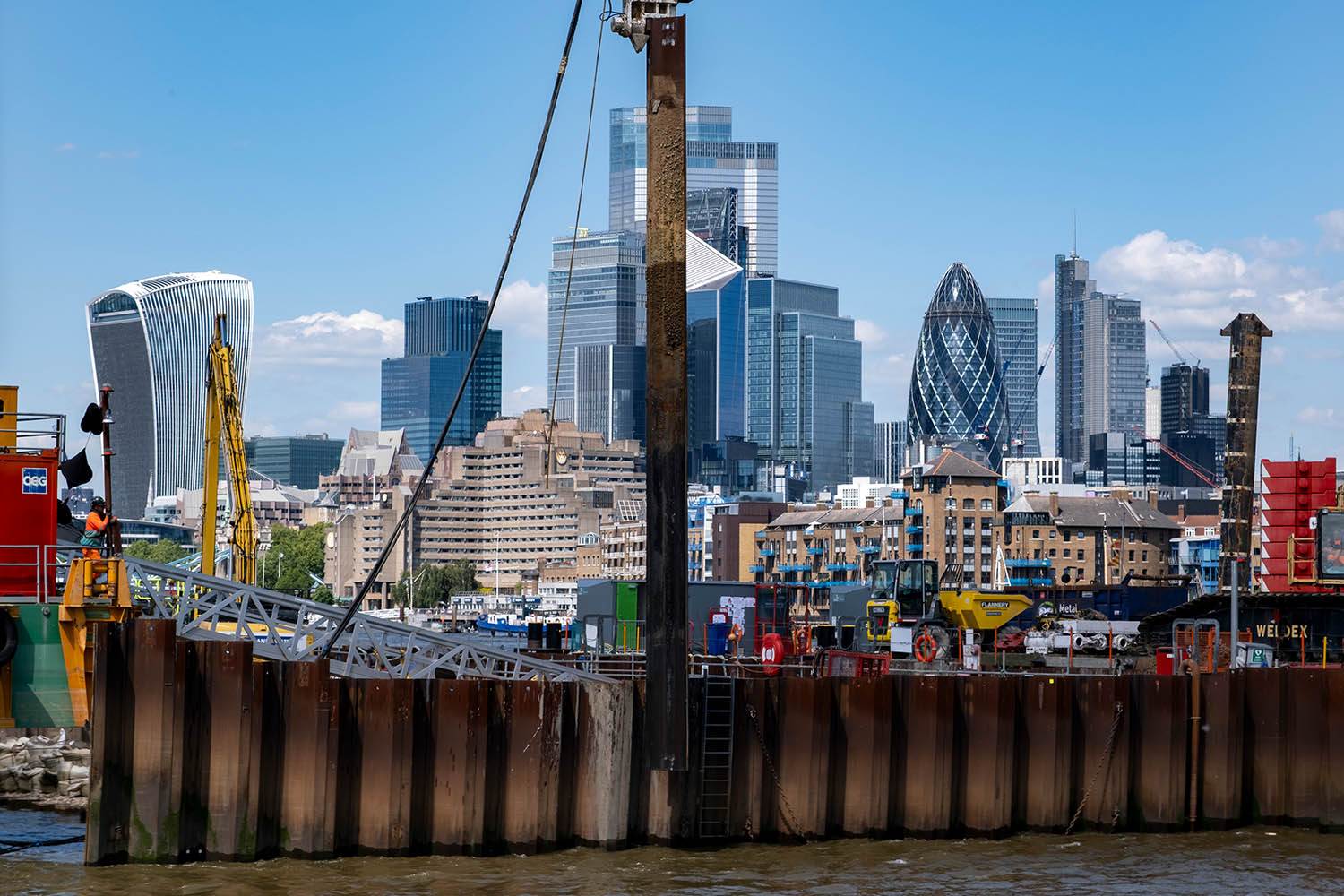Last Thursday morning came the news that GDP in June grew by 0.4%. It was a “positive surprise” decreed NIESR, the economic thinktank that, with its warning of an impending £50bn fiscal gap, is hardly a government patsy. Construction and services did much better than expected, so instead of the derisory 0.1% growth that economists had expected for the second quarter, the outturn was 0.3%. Even better, on an annualised basis, a resilient, broad-based British economy was growing at 2.2%, the highest in the G7. Not yet the basket case that the right insists.
Yet the feed on my mobile from the Times at 7.37am informed me that the GDP data was a “fresh blow to Reeves”, while the BBC declared that growth had slowed between April and June. As the day wore on, calmer instincts emerged at both organisations, so by the evening both were acknowledging that the economy was faring rather better. So no blow to Reeves, but rather for her detractors. Although in the battle for who first determines the narrative, the detractors had yet again won.
Yet the government does have a story. Britain has a strong service economy and an emergent vibrant tech economy – precisely the structure needed for 21st-century economic success. Strategically, it is aiming to reshape the financial system to unleash a flood of private capital on the tech economy from a new generation of pension superfunds (the first new the first new £110 bn fund announced last weekvia innovative public bodies, such as the British Business Bank, UKRI, Great British Energy and Innovate. It is investing big time to support the service economy, again deploying an innovative public institution – the National Wealth Fund. It’s a distinctive combination of public and private initiative. It will take time, but there are signs that it is beginning to work. If not this, what? A return to super-heated Trussonomics via Reform?
It is a story that does not even surface. Instead, the relentless rightwing bombardment is that Britain is being broken in every respect by a “useless”, “incompetent”, “terrible” chancellor, and her “useless” partner in crime, Sir Keir Starmer. This is the prism through which the government is seen, whatever the facts and whatever it says.
Thus, who has not heard of the exodus of the rich, the non-doms in particular, fleeing mindless socialism? Except it turns out that after the first 120 days of the financial year – according to accurate payroll data rather than specious, anecdotal pamphlets by partisan tax advisers – that the numbers departing are, perhaps, fractionally less than the Office for Budget Responsibility had forecast. Yes, some well-off people have been leaving. But those who stay and those who are arriving (the Cotswolds is now Britain’s Hamptons), because Britain remains a very desirable place to live, implicitly accept the proposition that they should proportionally contribute to the commonweal. Indeed, net emigration is at an all time low.
Nor does it seem that Reeves’s inheritance tax levy on farms is going to crush them; 80% of farmers, finds the independent Centre for the Analysis of Taxation, can comfortably find the funds from non-farm assets to pay the tax. Farmers are being invited to pay a fair share, respecting the particularities of farming. The hammering of rural communities by our “Marxist” government turns out to be another non-existent spectre.
On it goes, with even a comparatively sane Conservative MP like Neil O’Brien outdoing Nigel Farage in his hysteria. He writes of a “confluence” of issues ranging from a demographic crisis that will “doom” the country to “elite cultural self-hate” that, in response to a “faltering” economy, require not so much a revolution but a restoration. But of what? He cites Japan’s Meiji restoration in 1868 as an exemplar. So King Charles, like Emperor Meiji, must enlist Britain’s aristocrats and military, backed by a conscript army and, as monarch, impose social unity and restore conservative rule dedicated to state-led economic modernisation?
Politics is a battle of hearts as much as minds. But this is not the prime minister’s instinct
It may be over-the-top bonkers, impossible to reconcile with, say, a stock market touching new highs, but it has ideological energy from which our dominant rightwing media feeds. The Labour leadership hopes successful delivery and economic and social improvement will expose the hyperbole for what it is. But fire has to be fought with fire. To contest it we need a credible counter narrative rooted in facts on which a recognisable ideology can be built that speaks to the majority of the electorate’s core beliefs. There is a “we”; there is a common good. Politics is a battle of hearts as much as minds. But this is not the prime minister’s instinct.
There is a telling passage in Get In, Patrick Maguire and Gabriel Pogrund’s inside story of Labour under Starmer. Jeremy Corbyn had just been suspended in October 2020 after the EHRC ruling on Labour’s antisemitism. Against the outrage from the left, Starmer denied he was anti-left, quoted at one meeting as saying: “I don’t have any ideology at all. There’s no such thing as Starmerism and there never will be. I will make decisions one after the other. But yes, I welcome broad streams of advice and information.”
That might work as a CEO, although even CEOs have to find a language and purpose that animates their staff. In politics, making decisions one after the other – and in fairness, this very decent man has made many more that are right than wrong – in an ideology-free zone does not work. But it is manna from heaven for our madcap political right. They can say what they like, uncontested by a response fired by passionate core beliefs. So they frame the narrative. Labour has to find better words and ideology – and find them fast.
Photograph by Mike Kemp/In Pictures via Getty
